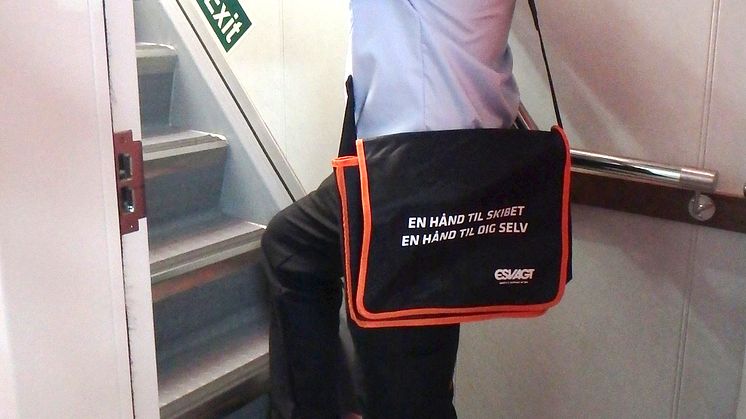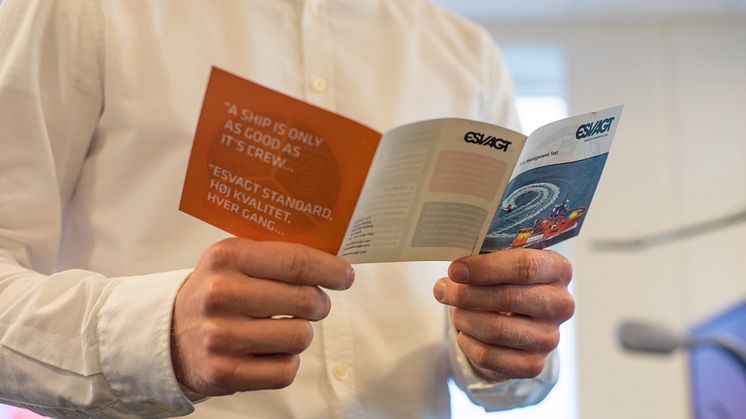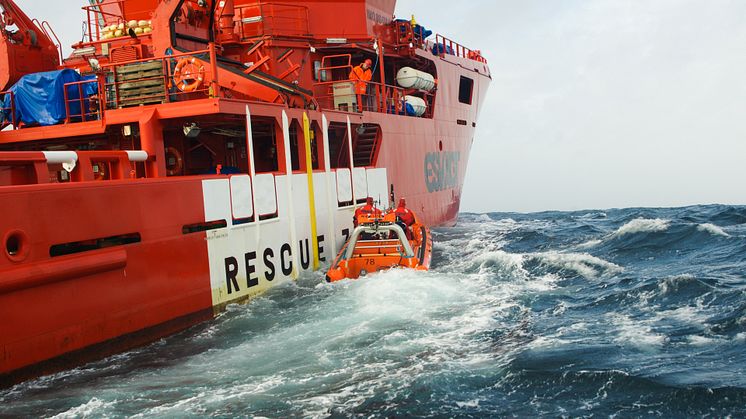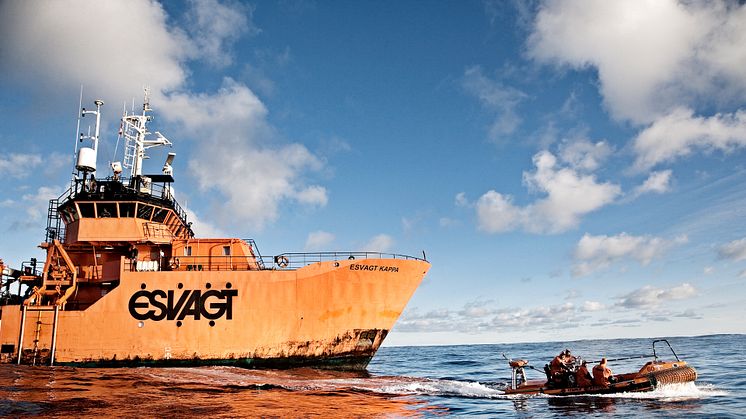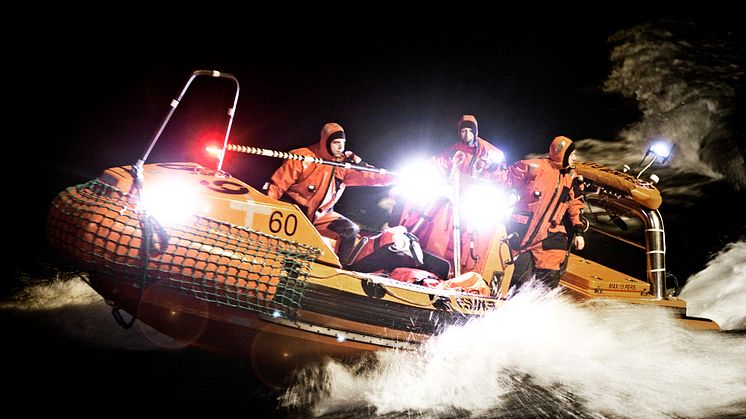
Press release -
HSEQ seeks to strengthen the motivation
Having friendly colleagues and a strong work culture is to be supported – bad seamanship must have consequences.
- We have a lot of employees carrying out jobs well done every single day: where quality, competence, safety and fellowship form a synthesis of good seamanship in keeping with the ESVAGT spirit. My ambitions are to make ESVAGT even more attractive for those of our employees who are keen on working according to this – and to make it harder on those who are not.
Jesper Dahl Frederiksen, HSEQ Manager at ESVAGT, is on a clear mission with the 2013 HSEQ programme.
The efforts are still to ensure high quality of the work, and safety for the individual and their surroundings, but focus has to shift. Instead of focusing on the colleagues not living up to the demands, focus must be on the good examples.
- A lot has been done to get as many employees as possible involved in this, but I think it will have a positive effect to shift focus. Many employees are doing well, and we have to show that we appreciate their method of work by raising the bars. When a job well done is considered to be standard, colleagues who are not willing to perform will have a hard time keeping up, Jesper Dahl Frederiksen says.
Pay tribute to the best
He underlines that this is not a question of witch-hunting or handing out notices. On the contrary, it is the exact opposite – we are to focus on the good examples in the hope that many more will go down this path.
- Some years ago when we aimed at having more reports on incidents to increase vigilance, this was in accordance with the no-blame culture. The most important issue was, to get people to take a note when things were inappropriate or unfortunate – instead of pointing your finger at the individual. We received many reports, and the level has definitely been raised, Jesper Dahl Frederiksen says:
- But in saying this, ”no blame” has its limits. When “no blame” is interpreted as a safe passage, the effect is no longer there. If you use the ”no blame” as an excuse for making the same mistake over and over again, without changing behaviour, or you simply ignore procedures and rules without consequences, this will water down our safety culture. And this is no good, Jesper Dahl Frederiksen says.
This is why we are shifting from no blame to just culture. Just culture is simply described as ’no blame 2.0’ or no blame for advanced learners – as just culture picks up the thread, where no blame let go.
- Just culture has high expectations from people. We believe that we can expect a certain standard from our colleagues. We expect them to be familiar with the values of the company. Many employees fulfil this today, and it is our duty to support this – we owe this to our employees. This is done by underlining that it is not acceptable if a colleague ignores rules and procedures over and over again, Jesper Dahl Frederiksen says.
Mistakes are still acceptable
An important point is that just culture allows for mistakes.
- Honest mistakes are acceptable. We all make them. But when it comes to not wanting to follow procedures or gross negligence being the cause of the mistake, this must have consequences. And up till now, we have not been keen enough, Jesper Dahl Frederiksen says.
Just culture is an open reporting culture like no blame, but where not just any kind of behaviour is accepted.
- Our present reporting is often based on repetition of mistakes, which we should be able to avoid. And it is the responsibility of the Management; onshore as well as offshore on board the individual vessel. If we do not act on the reports, we appear to approve unacceptable behaviour. We need to support the good behaviour by showing, that there is a rear edge; that there are consequences, Jesper Dahl Frederiksen says.
And this was the exact response received by HSEQ when flying a kite with the just culture-idea within the organization.
- The report states that people were positive regarding the use of consequences. They want to be supported when doing the right thing, and they have no interest in supporting colleagues who are not willing to join in. We believe this will enforce the ESVAGT spirit and contribute to leading our culture in a new direction, Jesper Dahl Frederiksen says.
Topics
Categories
ESVAGT is a dedicated provider of safety and support at sea, founded on an experienced and well-trained offshore crew and unmatched rescue capabilities.
We support the offshore Oil & Gas industries with a wide range of specialized services: Standby, Emergency Response and Resque Vessels (ERRV), Oil spill response, Firefighting, Tanker assists, Rig moves, Supply services and Interfield transfer of cargo and personnel.
In 2010, ESVAGT brought the dedicated offshore wind Service Operation Vessels (SOV) to the market. The SOVs provide accommodation for up to 40 technicians, storage for small turbine parts and a workshop, plus personnel and equipment transfer capabilities by either Walk-to-Work gangway system or Safe Transfer Boats.
ESVAGT was founded in 1981 and has a fleet of more than 40 vessels and more than 900 employees on- and offshore.


